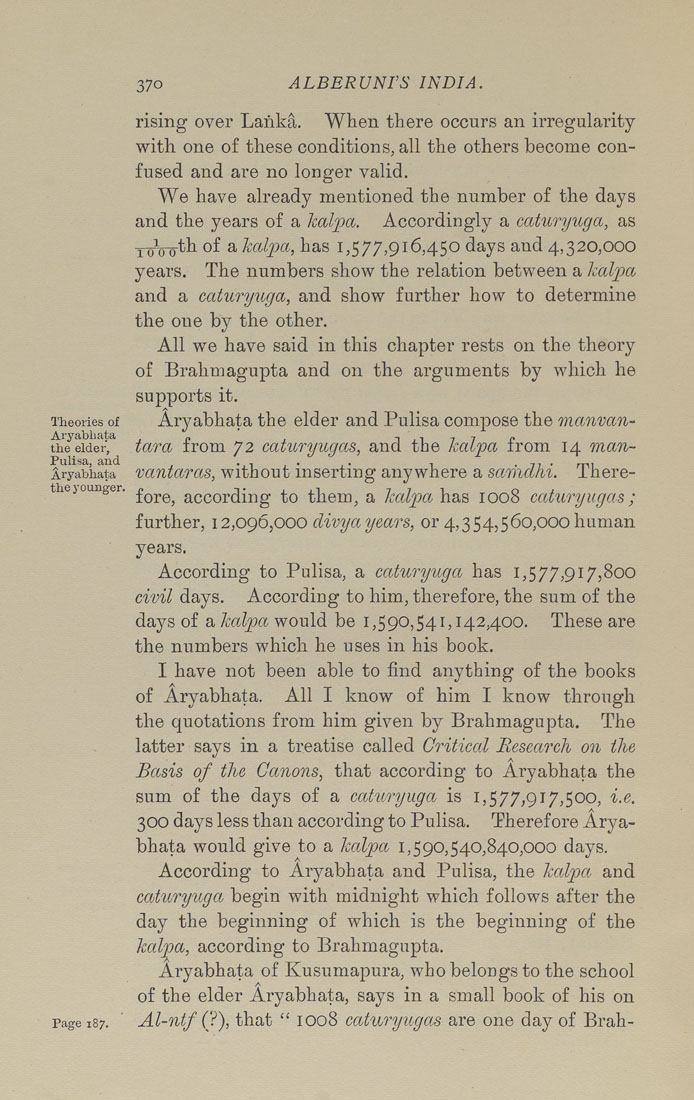370 ALBERUNPS INDIA.
rising over Lahka. When there occurs an irregularity
with one of these conditions, all the others become con¬
fused and are no longer valid.
We have already mentioned the number of the days
and the years of a kalp)a. Accordingly a caturyuga, as
y-g-Vo-tt of a kalpa, has 1,577,916,450 days aud 4,320,000
years. The numbers show the relation between a kalpct
and a caturyuga, and show further how to determine
the one by the other.
All we have said in this chapter rests on the theory
of Brahmagupta and on the arguments by which he
supports it.
Theories of Aryabhata the elder and Pulisa compose the manvan-
the elder, tava from 72 caturyugcts, and the kalpa from 14 man-
Iryabiiata vcLntctrcts, without inserting anywhere a sariidhi. There-
ejounger. £q^q^ accordiug to tlicm, a kalpa has 1008 caturyugas;
further, 12,096,000 divyayears, or 4,354,560,000human
years.
According to Pulisa, a caturyuga has 1,577,917,800
civil days. According to him, therefore, the sum of the
days of a kalpa would be 1,590,541,142,400. These are
the numbers which he uses in his book.
I have not been able to find anything of the books
of Aryabhata. All I know of him I know through
the quotations from him given by Brahmagupta. The
latter says in a treatise called Critical Besearch on the
Basis of the Canons, that according to Aryabhata the
sum of the days of a caturyuga is 1,577,917,500, i.e.
300 days less than according to Pulisa. Therefore Arya¬
bhata would give to a kalpa 1,590,540,840,000 days.
According to Aryabhata and Pulisa, the kctlpa and
caturyuga begin with midnight which follows after the
day the beginning of which is the beginning of the
kalpa, according to Brahmagupta.
Aryabhata of Kusumapura, who belongs to the school
of the elder Aryabhata, says in a small book of his on
Page 187. ' Al-ntf (?), that " 1008 caturyugas are one day of Brah-
|








